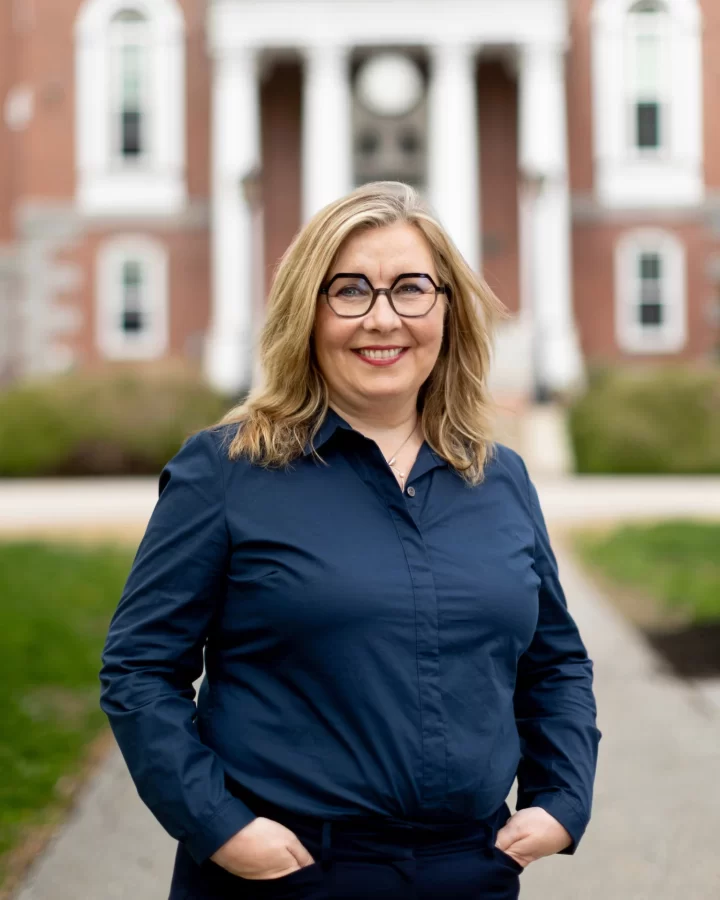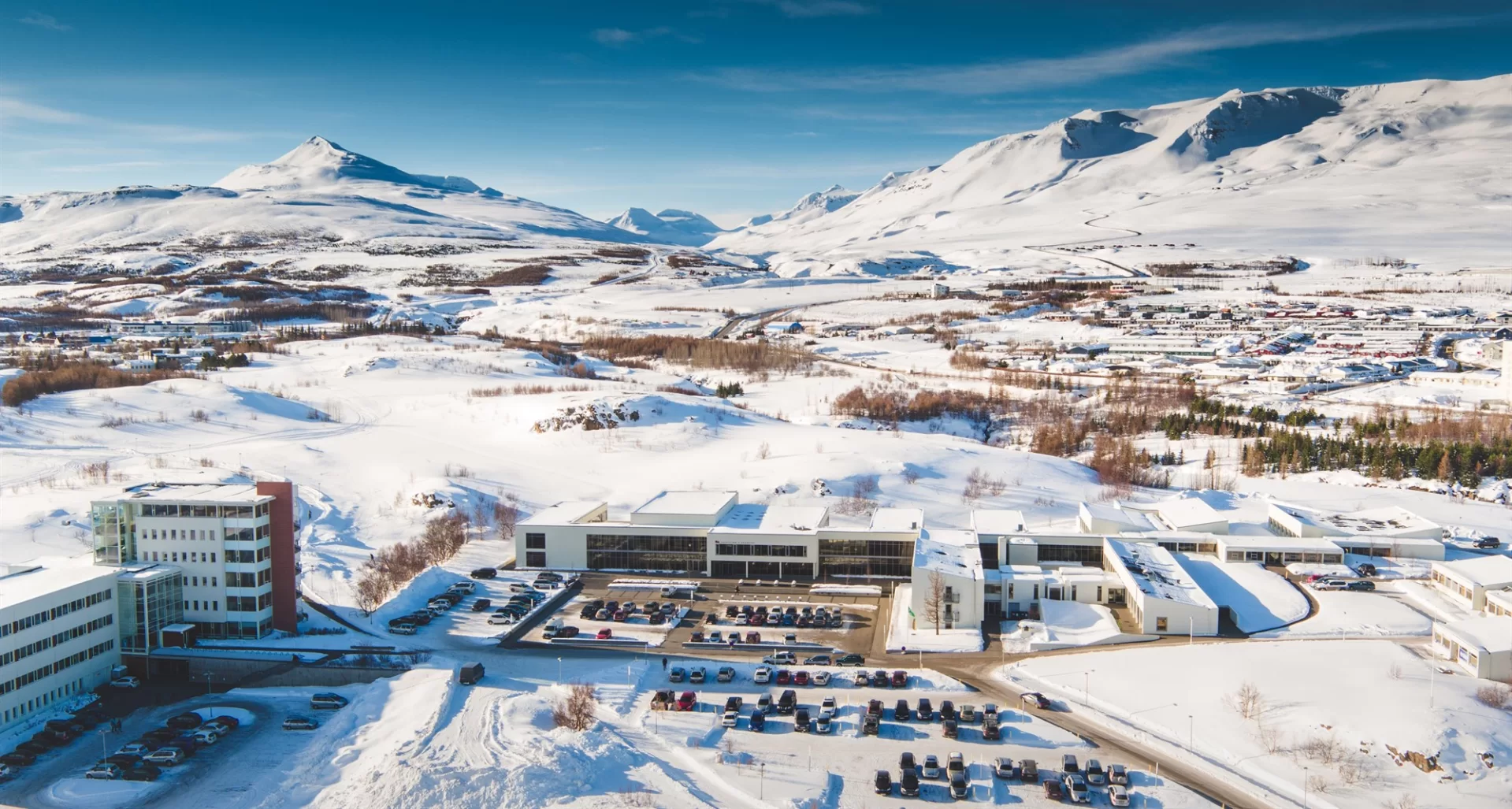Bates Professor of Politics Áslaug Ásgeirsdóttir always wanted to return to her homeland of Iceland — but only if she could contribute in a meaningful way. Ásgeirsdóttir got her wish this spring when she was offered the rectorship of the University of Akureyri, a role in Iceland equivalent to president. Her rectorship begins July 1, 2024.

“This is the right opportunity at the right time. I was never going to move back just because I wanted to,” Ásgeirsdóttir said. “It always had to be because there was also an interesting opportunity to contribute to higher education in Iceland.”
As Ásgeirsdóttir did a Zoom interview last week, a group of students showed up at her office with a huge bouquet of flowers. She returned to the interview clearly touched by her students’ gesture. That’s a big part of why she will miss the Bates community: her work guiding students, and her close interactions with Bates students.
“I’ve gotten to do a lot of different things at Bates. You have a lot of freedom at Bates with what we call the educational journey with students. And I’ve just always loved that about Bates,” she said.
Ásgeirsdóttir, who joined the Bates faculty in 2001, is a widely published expert on ocean governance, including the settling of maritime boundaries. She taught courses at Bates that included “International Political Economy,” “Ocean Governance,” and “The Arctic,” and advised senior thesis students.
In addition to her teaching and research, Ásgeirsdóttir has made significant contributions to faculty governance at Bates, including a term as associate dean of the college, said Malcolm Hill, vice president for academic affairs and dean of the faculty.
“We are all very excited to see Áslaug take on this important leadership opportunity,” said Hill in his announcement to the Bates faculty. “I am deeply indebted to Áslaug, having benefited from her strong and unflappable leadership and wise counsel as associate dean. She tackled several important initiatives including introducing improvements to the Bates Faculty Development Fund, revamping the departmental review guidelines, and guiding a successful proposal to strengthen principles of faculty governance and committee work.”
The University of Akureyri, located in the town of Akureyri in the north of Iceland, offers undergraduate, graduate, and doctoral programs in the health sciences, business, natural sciences, social sciences, and humanities for about 2,800 students.
“I think what I bring to the table is an outside perspective, a different view,” said Ásgeirsdóttir, “but also a great deal of experience and deep experience in managing people, overseeing projects as well as years of experience teaching and publishing.”

Ásgeirsdóttir plans to get to work ensuring continued educational access on the Nordic island — which means something different in Iceland than it means in the U.S. In Iceland, public education is free, but that still doesn’t always translate into easy access to education as towns are far away and people often work while taking classes, Ásgeirsdóttir said.
The University of Akureyri, which is a pioneer in blended learning in Iceland and has a reputation for educating teachers and nurses, among other professionals, also faces some of the same challenges as U.S. universities, such as the complexities presented by artificial intelligence and the role on-line learning will play in the future.
Ásgeirsdóttir is eager to work with faculty and staff to help the university navigate its way through the uncertain times in the world and in Iceland, which is a country roughly the size of Ohio with a population of nearly 400,000 people.
“How do you continue to provide great educational offerings and ensure that the quality of what you’re doing is great? There’s a lot up in the air, but it’s a great institution with a great reputation and I would like to carry that forward,” she said.


